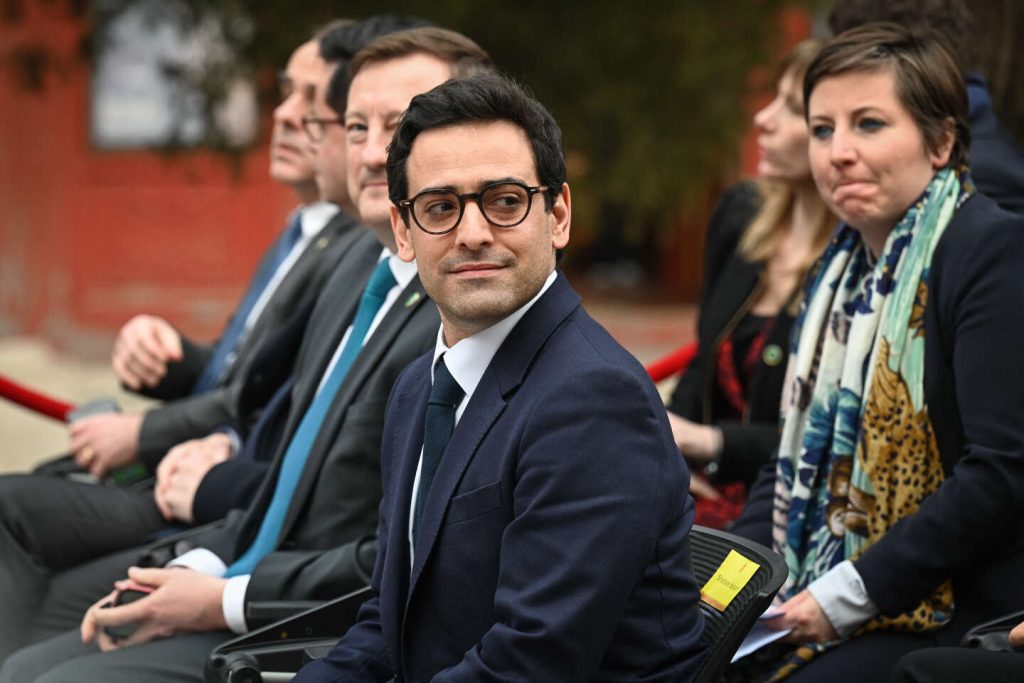After a difficult year in 2023, French diplomacy is looking to regain its footing in Africa. With its influence declining in the Sahel and anti-French sentiment becoming more prevalent in certain countries where France was once prominent, France is seeking to demonstrate that it is still welcome in other parts of the continent. The French Minister of Foreign Affairs, Stéphane Séjourné, embarked on his first tour of Africa since his appointment, visiting Kenya, Rwanda, and Côte d’Ivoire to highlight successful partnerships between France and African countries. The goal is to show that France is committed to Africa as a priority, not just in terms of security and historical ties, but also in economic, cultural, and societal aspects.
This diplomatic tour is in line with the approach initiated by French President Emmanuel Macron upon taking office. Macron has emphasized the need for partnerships with new states and in new forms, distancing himself from the colonial past. However, despite Macron’s efforts, there have been instances where he has been criticized for supporting dynastic successions and maintaining ties with leaders from France’s colonial past. Stéphane Séjourné, who has no previous connection to the continent, aims to show that France recognizes that Africa is at the end of a historical cycle that began in the mid-20th century, characterized by incomplete decolonization and France’s retention of certain privileges and prerogatives.
The first stop on Séjourné’s tour was Kenya, a new ally of France and an English-speaking country. Since coming to power in 2022, President William Ruto has emerged as a key partner for Europe and the United States. At the request of Washington, Kenya has committed to leading the United Nations intervention force in Haiti, whose deployment has been delayed pending the establishment of transitional bodies following the resignation of the Haitian Prime Minister in early March. This visit underscores the importance of strengthening ties with countries like Kenya that can play a significant role in regional and global affairs.
Rwanda was the next destination on Séjourné’s tour, known for its remarkable progress in economic development and gender equality. France and Rwanda have had a complicated history, marked by the 1994 genocide and subsequent strained relations. However, in recent years, there have been efforts to rebuild ties and focus on mutual cooperation, particularly in areas such as education, technology, and sustainable development. The visit to Rwanda symbolizes France’s willingness to move forward and engage constructively with countries where there is potential for collaboration and partnership.
The final stop on the tour was Côte d’Ivoire, a country with a strong economic potential and strategic importance in West Africa. Côte d’Ivoire has made significant progress in economic recovery and political stability following a period of conflict and instability. France has been a key partner in supporting Côte d’Ivoire’s development efforts and strengthening bilateral relations. The visit to Côte d’Ivoire highlights the importance of maintaining strong partnerships with countries that have made significant strides in areas such as governance, economic growth, and regional cooperation.
In conclusion, Stéphane Séjourné’s tour of Africa reflects France’s commitment to revitalizing its engagement with the continent and cultivating partnerships based on mutual respect and cooperation. By visiting countries with diverse backgrounds and strategic importance, France aims to demonstrate its willingness to adapt to a changing global landscape and address the challenges and opportunities presented by a rapidly evolving international environment. The tour represents a new chapter in France’s relationship with Africa, emphasizing the importance of shared values, common goals, and a commitment to building a more prosperous and stable future for both France and its African partners.


